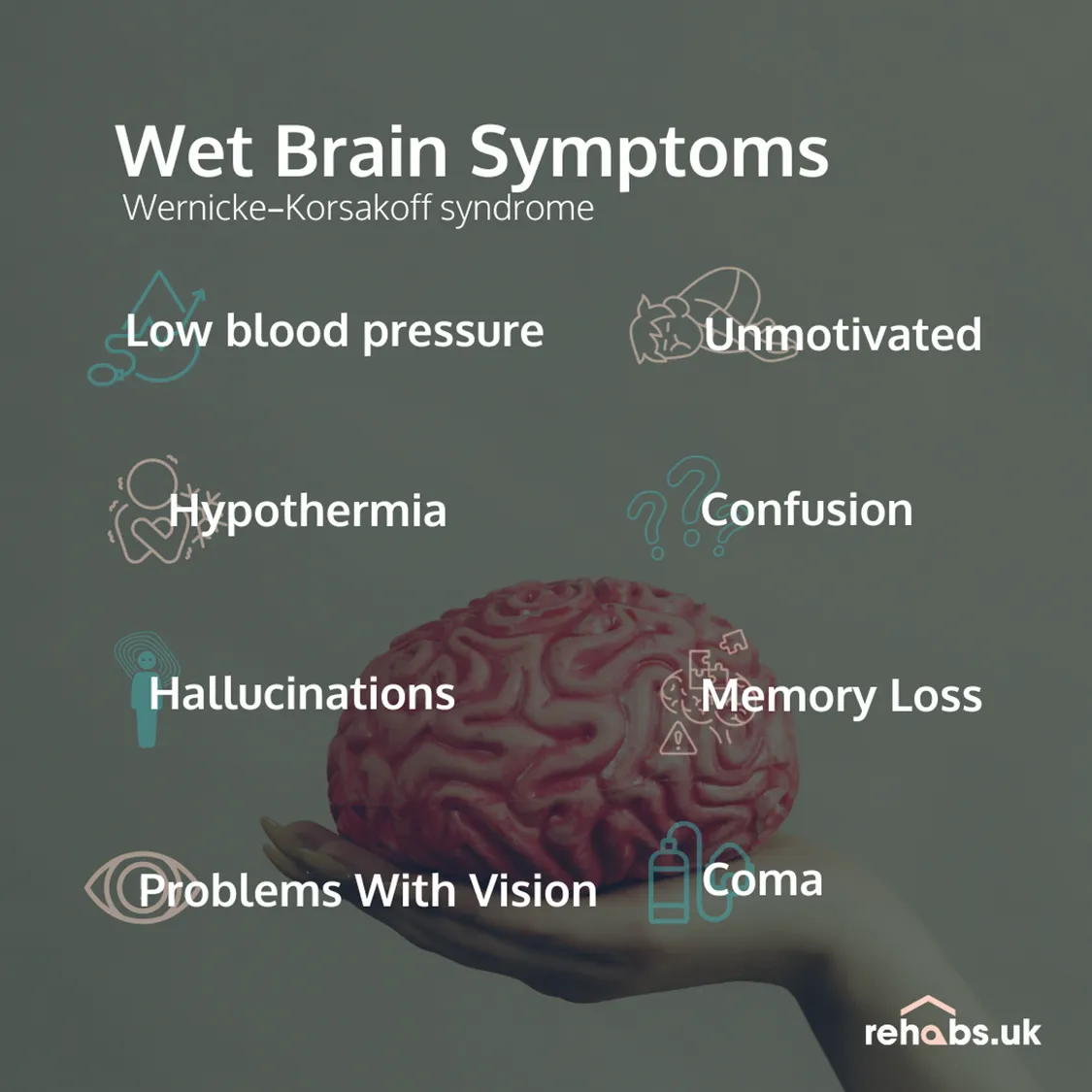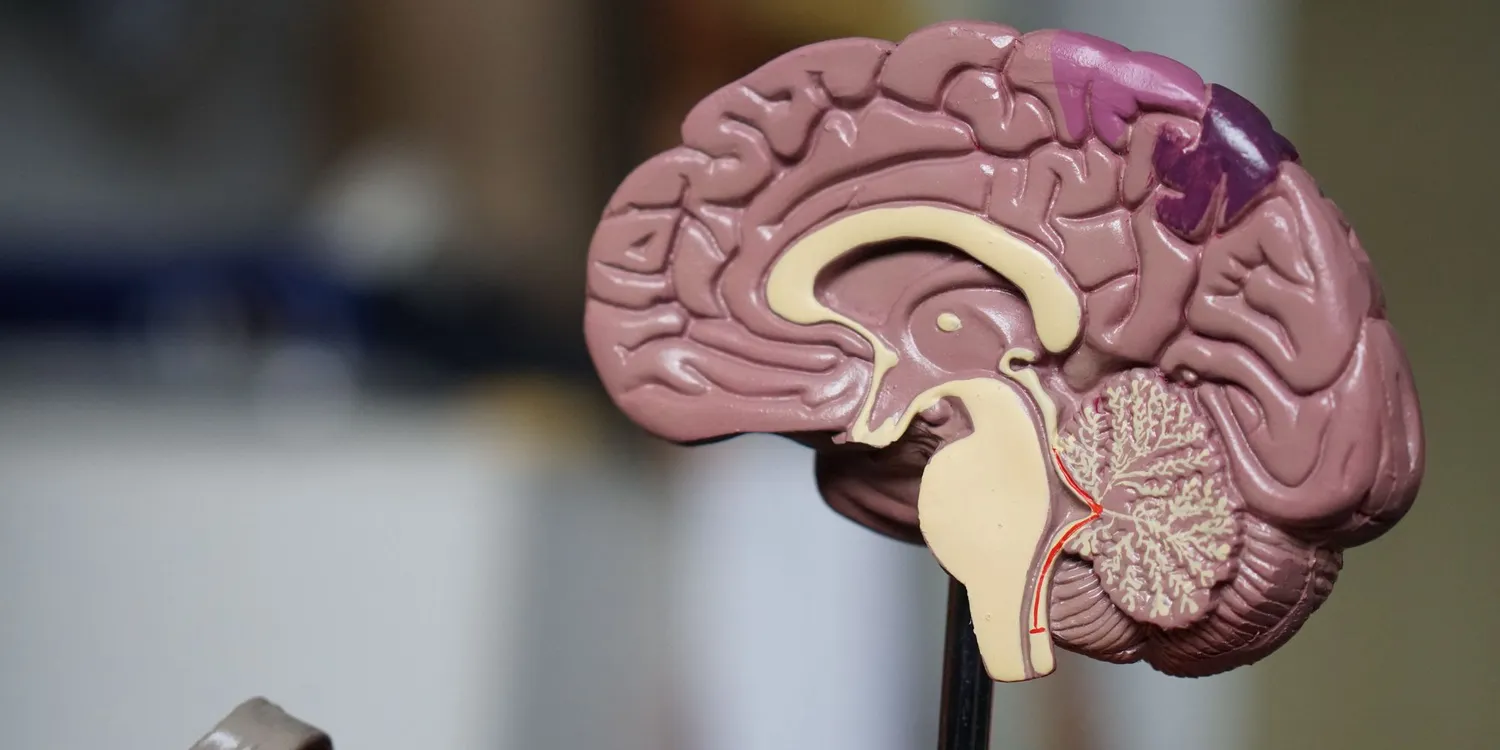28 Nov 2023
What is Wet Brain Syndrome?
Wet Brain syndrome, also known as Wernicke–Korsakoff syndrome, is a serious neurological disorder caused by a deficiency of thiamine (Vitamin B1). While the medical terminology might be complex, we'll use 'Wet Brain' throughout this article for a better user experience. Director of Rehabs UK, Lester Morse, notes, "Wet Brain is a debilitating condition that arises from prolonged alcohol abuse and can have severe consequences on one's cognitive function."
What Causes Wet Brain?
Wet Brain syndrome can be triggered by various factors, occurring separately or in combination.
Prolonged Alcohol Abuse
Excessive and prolonged alcohol consumption is a leading cause of Wet Brain. It is crucial to understand the quantity of alcohol that can lead to this condition.
How much do you have to drink to develop Wet Brain?
According to research, there is no precise amount that guarantees the development of Wet Brain. However, chronic heavy drinking significantly increases the risk.
Thiamine (B1) Deficiency
A deficiency in thiamine, often associated with alcoholism, is a key factor in Wet Brain development.
Eating Disorders
Individuals with eating disorders may experience thiamine deficiency, increasing their susceptibility to Wet Brain.
Malnutrition
Poor nutrition, common in those with alcohol use disorder, can contribute to the development of Wet Brain.
Poor Gut Absorption
Alcohol can have a major impact on the stomach. Conditions can affect gut absorption, such as gastrointestinal disorders, can hinder thiamine absorption, leading to Wet Brain.
Symptoms of Wet Brain and Excessive Alcohol Use
Recognising the symptoms of Wet Brain is essential for early intervention.

Loss of Appetite
A decline in appetite is a common symptom, often linked to nutritional deficiencies.
Nausea or Vomiting
Digestive issues, including nausea and vomiting, may manifest in individuals with Wet Brain.
Rapid Weight Loss
Unexplained and rapid weight loss can be indicative of nutritional imbalances.
Issues with Vision and Eye Movement
Wet Brain can affect vision and eye coordination, causing difficulties in daily activities.
Short-term Memory Loss
Memory impairment is a significant symptom, affecting both short-term and long-term memory.
Consequences of Untreated Wet Brain Alcoholism
Failure to address Wet Brain can lead to severe complications.
What is the Life Expectancy of Someone with Wet Brain?
Individuals with Wet Brain may experience a shortened life expectancy. Early treatment is crucial to slow down the progression and alleviate symptoms.
Treatments Available for preventing Wet Brain
Preventing Wet Brain requires treating the root cause, which is excessive alcohol use.
Detox
Detoxification is the initial step, involving the removal of alcohol from the body. Medications can assist in managing withdrawal symptoms.
Cognitive Behavioural Therapy
Cognitive Behavioural Therapy (CBT) is effective in addressing the psychological aspects of addiction, helping individuals develop healthier coping mechanisms.
Online or Phone-based Therapy
For those unable to attend in-person sessions, online or phone-based therapy provides accessible support.
Inpatient or Outpatient Rehab
Rehabilitation programmes, whether inpatient or outpatient, offer structured support and therapy to help individuals overcome addiction.
Summary
While Wet Brain is a serious condition, it is not without hope. Early intervention and comprehensive treatment can significantly improve outcomes. If you or someone you know is struggling with excessive alcohol use, take the first step towards recovery. Contact us today to regain control of your life.
Medical Disclaimer: This article is for informational purposes only and should not be considered medical advice. Consult with a qualified healthcare professional for diagnosis and treatment of any medical condition.
